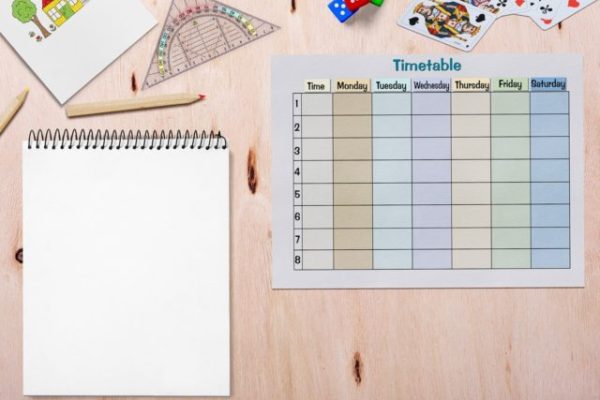In my last post, I made my first specific reference to the approach of the end of the school year. I discussed the importance of knowing just how much time in class remains to you so you can make the best possible use of it and bring your final grades as close to where you want them as you can get them. As you look back on what you did well and what you found challenging, pay attention to what did and didn’t work for you. Knowing what to keep and what to change about your study skills can help you not only end this year on a positive note – it can also help you go into next year feeling more confident than you ever have before.
A good place to start is by evaluating how well you did with any study methods your teachers may have required, such as making flash cards or organizing your notebooks in a certain way. Be honest with yourself about how you handled required study methods, and try not to reject them out of hand unless you have found that other methods work better with your learning style. Required methods can seem very time-consuming and not all that helpful at first, but if you found them easier as the year wore on because you got used to them, or took my advice about using time wisely, planning ahead, and preparing for tests instead of simply studying for them, you might have found that having required materials prepared in advance had the positive effect on your test scores that your teachers were aiming for when they assigned them, and that alone might be enough for you to see the value in continuing to use them in the future.
In addition to evaluating how well you did with assigned study methods, be sure to take an honest look at anything you decided to do on your own. If you came up with an idea that seemed to work for you, such as reading your notes aloud, covering them and trying to recite them, using a whiteboard for extra practice, or getting someone to quiz you, did you do it consistently? Did you do it more than once, for several days, or for a week or more before a test, or did you only do it the night before or morning of a test? Did you focus more of your time and effort on your preferred subjects and less on the more challenging ones? Did you let the methods you came up with yourself take too much time away from required ones instead of trying to balance them, thereby adversely affecting your overall grades even though your test grades were decent? When you consider which methods to keep and which methods to change, remember that it is often a combination of methods that works best, and that unless they impact your learning style enough to make it worth talking to your teachers and asking permission to do things differently, required methods exist for a reason. Try not to get too excited to see a required method go away at the end of the year – instead, be prepared in case it is required again, and try to start the new year making the best of it instead of complaining. Sometimes, it takes more than one school year for a good study method to truly stick, whether it is a required method or not, and unless a method has a decidedly negative impact on your grades, it is better to err on the side of planning to keep it than planning to get rid of it. The more you have in your bag of tricks, the more you have to draw on, and the more you have to draw on, the more able you will be to build your study skills and prepare for increased expectations in the future.
In addition to evaluating study methods, take a look too at how you handled assignments, both daily homework and long-term projects. How consistent were you with writing assignments down yourself, instead of relying solely on your school’s online portal? Did you only use the online calendar, or did you also make your own, so you could add things to it to better plan your time, while removing things that did not apply to you? How well did you manage your time each night, make time to work on weekends, and generally avoid procrastinating? If you think you will need to be better about any of these things at the beginning of next year, start now, and write down anything you did that allowed you to see improvement, no matter how small. Make sure to keep whatever plans you make, whether you write them, type them, or do both, where you will be able to find them when the new year starts. The same goes for study methods, and assignments on which you applied them. Instead of just tossing every paper and emptying every online folder, keep a copy of anything that might be useful to you next year, as an example of something that worked that you might wish to use again, and/or as a review of content that might help you when you are faced with more advanced content next year. When I say you might wish to use something again, make sure you understand that I do NOT mean you should turn in the same assignment, or anything close to it. What I mean instead is that you might wish to keep a writing assignment that can help you with paragraph structure, or a research paper that can help you with citing your sources properly, or a math assignment or test on which you showed your work well enough that it can help you review the concept and/or offer you a guide for showing your work on the more difficult problems you will soon face. Try to find the right balance between throwing out or deleting everything just because you can and keeping everything because you think you should, and only keep what you truly believe can help you build both academic and study skills progress in the new year.
As the end of the school year approaches, it is a good time to look back at all you’ve accomplished, so you can figure out what you did well and what you still wish to do better, both through the remainder of this school year and in preparation for the new school year to come. Figuring out what worked for you, with required and/or chosen study methods, as well as with both daily assignments and long-term projects, and evaluating what to keep and what to change moving forward, is a great way to ensure that you will continue to make progress on your study skills journey, both now and in the future.

